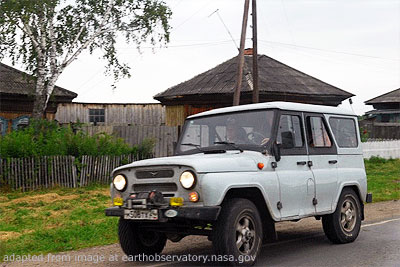Many Russians Prefer Village Life to Urban Because They Fear Change, Novikova Says

(Paul Goble – Window On Eurasia – Staunton, Aug. 31, 2021)
Because so many Russians have left villages to move to the cities, it is often overlooked that many Russians choose to remain in villages and many who have moved into urban areas nonetheless view village life as preferrable in a variety of ways to the one they find themselves in.
In a new book, A Delightful Place. Media Consumption, Media Literacy and Historical Memory of Rural Residents, HSE scholar Anna Novikova and her colleagues say that villagers view life in the cities as “worse” than in their areas because of the cruelty of people in cities and the dependence urban residents feel on the powers (iq.hse.ru/news/499510624.html).
Rural residents choose to remain where they are not only because of financial considerations, although these matter; they do so because of the values they hold and believe are better protected in villages than they would ever be in cities, the media specialist says she and her colleagues found in their conversations with villagers.
Many rural Russians remain traumatized by the tragic events of the last century; and far more than residents in the cities, they feel these events, be they the Russian civil war, Stalin’s repressions, the Great Patriotic War and the collapse of the Soviet Union, not as part of some “distant past but as a real experience and basis for making decisions” now and in the future.
That perspective leads rural Russians to think about the world as dangerous and harsh and to feel that any well-being they are experiencing now is temporary and should not be put at risk by any change. Otherwise, Novikova says, most of them believe that their situations will get worse.
“We saw people who are very cautious about accepting any innovation and in particular in the media sphere.” They may have the opportunity now to watch multiple channels, but they prefer to watch only two all-Russian ones and “sometimes a single thematic one, often children’s television,” Novikova says.
At the same time, she continues, “they do not trust the information which they receive from these channels.” Rather, “they receive from them confirmation of their fears” about the way the world is constructed and operates. They thus live with a paradox: they are dissatisfied with life but they do not have any desire to change it.
One consequence of this attitude is the curious combination of the very old and the very new, of wood stoves in the same room with flatscreen televisions. That is a physical manifestation of the disjunctions in their lives that they have to navigate and appear to believe can best do that by not allowing any more change.
More generally, the HSE media specialist says, rural Russians “do not want to take responsibility not only for the life of the community but for their own, preferring to hand both over to the will of wait, nature and chance. They retell with relish rumors and social myths which strengthen their conviction in the correctness of their position.”
But the villagers “do not want and are not able to search for trustworthy information which could force them to change their views.”
[article also appeared at windowoneurasia2.blogspot.com/2021/08/many-russians-prefer-village-life-to.html]
